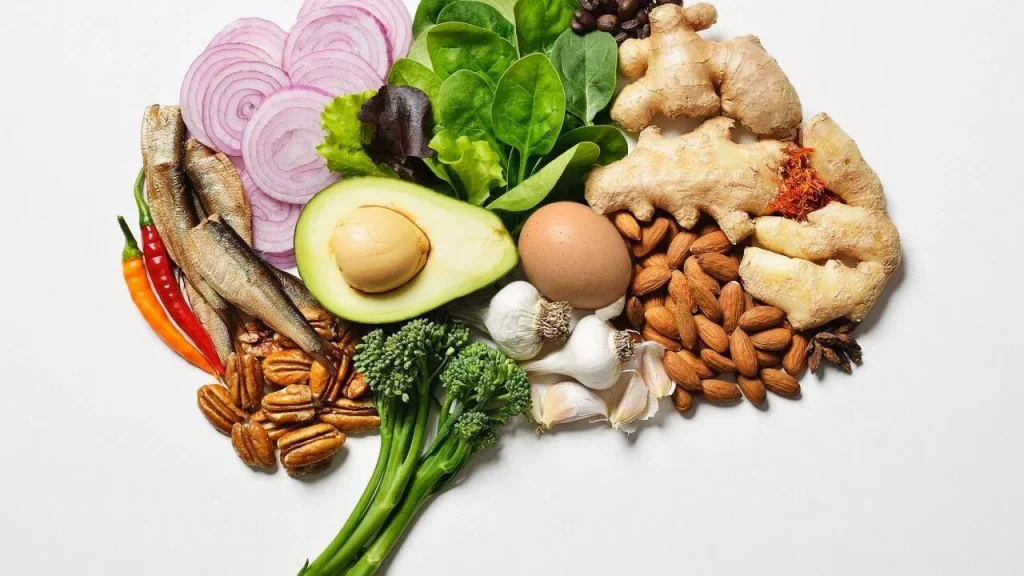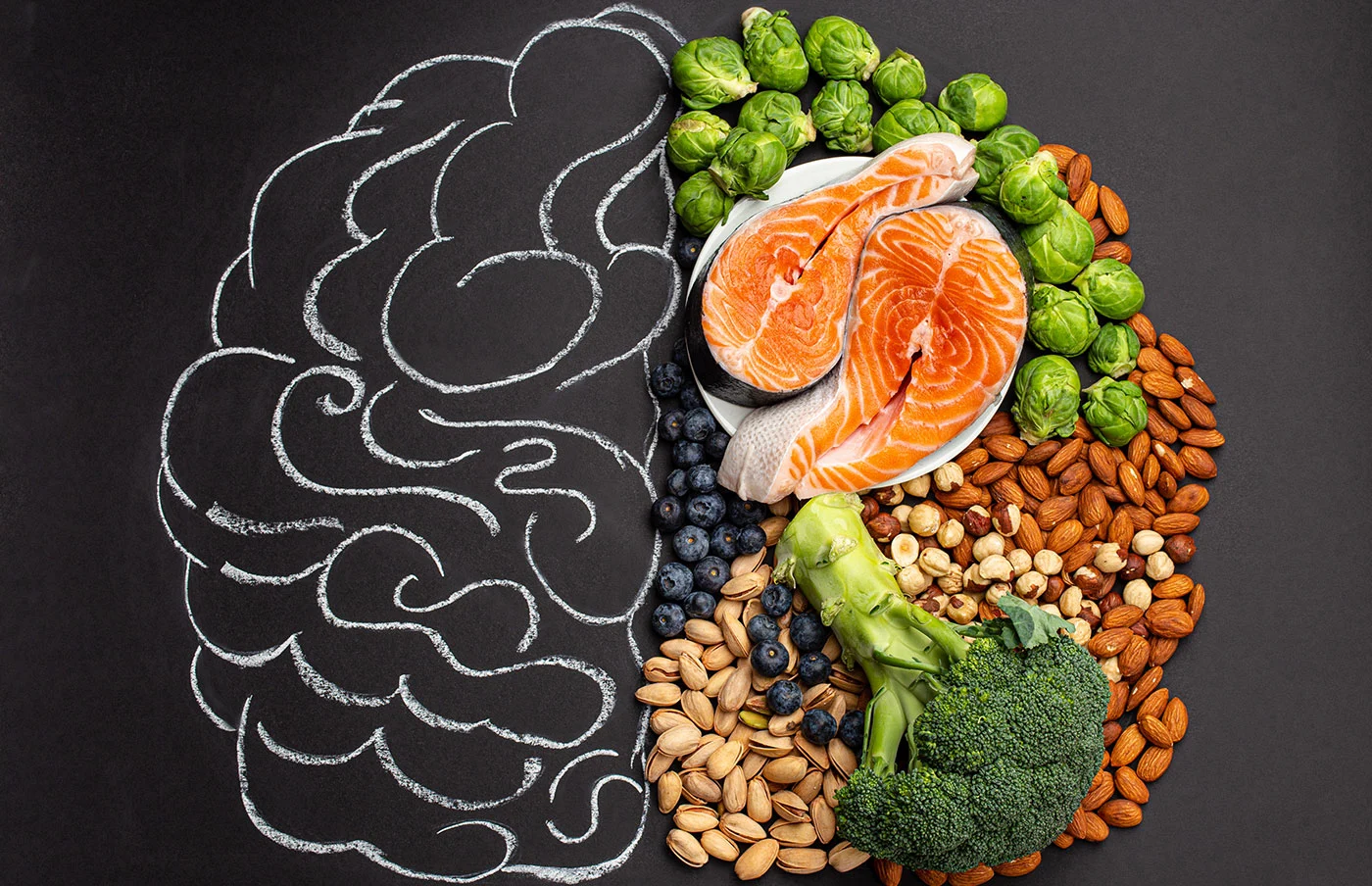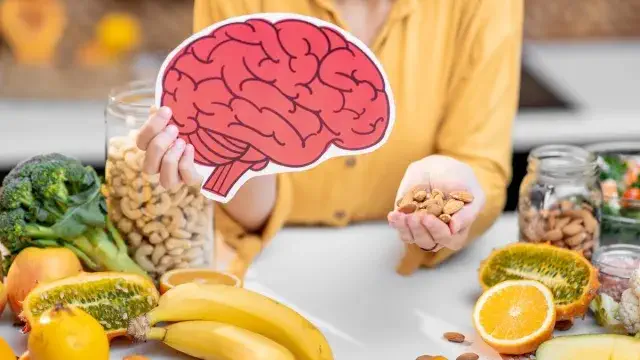
Eat These 8 Foods to Prevent Dementia!
Have you ever considered what trivial things you tire your mind for? Mental fatigue, when it continues for years, can cause diseases that threaten your health. One of these diseases may be Alzheimer’s. To prevent the development of this disease, it is necessary to consume the best foods to prevent dementia, which we have reviewed in this article from humanhealthmag.
What foods are best to prevent dementia? Alzheimer’s, which occurs as a result of the loss of brain function capacity, although it is known as a disease of aging, is actually a disease caused by an abnormal brain process. For those who are looking for ways to protect themselves from Alzheimer’s, we will review our herbal suggestions, information about the best foods for dementia patients to eat and the factors that cause this disease one by one. After reading this article, you will take more care of yourself!
8 Brain-Boosting Foods to Prevent Dementia
Research shows that dietary considerations may help protect the body from dementia in the elderly. Even prevent brain-wasting diseases. Alzheimer’s is the most common cause of dementia in people 65 years of age and older. According to the Alzheimer’s Academy Association, more than 3.5 million Americans suffer from this disease. It is interesting to know that one person is diagnosed with Alzheimer’s every 70 seconds!
While Alzheimer’s and other forms of dementia are thought to be an inevitable side effect of aging, some research suggests that brain foods may help prevent dementia and even brain-wasting diseases. Because dementia is associated with long-term inflammation, foods that have long-term anti-inflammatory effects, when added to a person’s diet may delay the disorders that come with aging. In the following, we take a look at eight common, readily available foods that have this property. This 8 best food for reducing dementia risk are:
1- Dark Chocolate
The flavonoids in cocoa increase blood flow to the brain and may protect against conditions that reduce blood flow to the brain (such as dementia and stroke). In addition to chocolate for seniors, flavonoids are found in almost all fruits, vegetables, herbs, and spices. A good rule of thumb is that the more colorful the fruit or vegetable, the higher its flavonoid content. To get the most benefits, buy chocolate with a low sugar content and a high cocoa content.
2- Fish and seafood
One of the Foods to Prevent Dementia that is highly emphasized in the recommendations of experts is seafood. Seafood is a rich source of essential omega-3 fatty acids, as well as other important nutrients such as vitamins D and B12, which help prevent some neurological disorders. People who eat seafood have the lowest rates of memory problems and Alzheimer’s risk. For people who do not eat fish, walnuts, flaxseeds and dark leafy greens are rich sources of plant-based omega-3s and alpha-linolenic acid (ALA), but they are deficient in eicosapentaenoic acid (EPA) and docosahexaenoic acid (DHA), two major omega-3s.

3- Turmeric
Plaques that build up in the brain seem to contribute to the progression of brain cell degeneration and lead to Alzheimer’s disease. One study found that curcumin, a compound found in turmeric, is an effective substance that breaks down plaques in the brain.
Turmeric has long been used as an excellent anti-inflammatory food and is commonly used as a seasoning and spice in foods. In the countries that use curry spice (containing turmeric) commonly, a lower rate of dementia has been reported. Add this inexpensive and abundant spice to your diet at least once a week to reduce inflammation and prevent dementia. By adding a curry spice that consists of turmeric mixture to your meals, you can prevent damage to brain cells.
Ginger, like turmeric, has similar anti-inflammatory properties. Although research on ginger’s effects on brain function is limited, ginger’s ability to reduce inflammation may indirectly have some dementia-preventing effects.
4- Apples
There’s more than one reason to eat an apple a day these days. Research has shown that quercetin, which is abundant in apple skin, protects the brain from damage associated with Alzheimer’s disease and other neurological disorders. Other studies have also shown that eating apples may help reduce the risk of cancer.
5- walnut
Do not neglect the benefits of eating walnuts for elderly. Research on aging and foods to prevent dementia has shown that a balanced diet for alzheimer’s patients containing walnuts helps improve cognitive and physical skills in older people. Experts believe that the combination of polyphenols, omega-3 fatty acids, and other bioactive substances found in walnuts is responsible for this beneficial effect, but consuming more of them is not necessarily good. This may be due to the high level of omega-6 in walnuts.
Although walnuts are rich in alpha-linolenic acid, they are higher in linoleic acid, an essential omega-6 fatty acid. Linoleic acid can lead to the body producing more inflammatory compounds and less anti-inflammatory omega-3 fatty acids, and this is when the ratio of omega-6 to omega-3 is out of balance. While the exact mechanism of how walnuts work to improve mental performance is unknown, most doctors and nutritionists recommend eating nuts, so don’t hesitate to benefits of nuts for the elderly and eat a healthy amount of walnut.
Enjoy a handful of mixed nuts, dried fruits (like dates, raisins, and dried berries), and nuts like hazelnuts, walnuts, and pistachios every day to get a range of health-promoting nutrients.
6- Green Tea
Green tea is rich in a type of flavonoid called catechin, which has memory-enhancing properties. Since this flavonoid supports mental development, brain cells are protected and the risk of Alzheimer’s is eliminated in old age. Many studies have found the health and beneficial properties of green tea, including its ability to reduce the risk of cancer as well as reversible neurological diseases. Green tea’s ability to maintain and control weight has also made this food a popular option in many health-promoting diets. You can take care of your health by drinking 2 cups of green tea a day.

7- Asparagus
A study showed that people with folate deficiency were 3.5 times more likely to develop dementia. To ensure you get enough folate, include asparagus as a food to prevent dementia and as an occasional addition to your diet! One cup of asparagus provides some of your daily folate needs.
Other great sources of folate include citrus fruits, legumes (note that for maximum nutrient absorption and absorption by the body, it is best to sprout legumes), broccoli, cauliflower, beets, lentils, and leafy green vegetables like spinach and turnip greens.
8- All Kinds of Cherries & Berries
Scientists have found that the antioxidant compounds and anthocyanins that give cherries their bright red color have anti-inflammatory properties, but are devoid of any potential side effects. Nonsteroidal anti-inflammatory drugs (NSAIDs) can cause adverse effects, some of which include stomach bleeding and heart attacks. But cherries do not irritate the stomach the way industrial drugs do and contain compounds that prevent platelets from sticking together in the blood.
Cherries and fruits from the berry family, such as raspberries and strawberries, all contain antioxidants and anti-inflammatory substances that help reduce brain inflammation and brain oxidative stress. Both brain inflammation and oxidative stress are associated with dementia and Alzheimer’s.
Berries, especially blueberries, are one of the most powerful fruits for protecting the brain and best foods to prevent dementia. Strawberries also have many benefits and affect cognitive function. Blueberries slow down the aging process of cells and create new brain pathways during old age. Consumption of berries slows down the progression of Alzheimer’s and helps improve memory.
Concluding Remarks
Alzheimer’s disease is the most common cause of dementia in adults. Many factors, such as genetics, smoking, exercise, and education, play a role in the development of Alzheimer’s. Diet should also be added to this list. Doctors have always said that what you eat can affect the health of your heart. This is also true for the brain, and the foods we eat can affect the function of our brain.
While there are many factors that increase the risk of Alzheimer’s and cognitive decline that are beyond our control, our diet is a factor that is very much under our control. The food we choose is tied to both body and brain health.
Many research and studies have been conducted and it has been found that eating certain foods is associated with a reduced risk of Alzheimer’s and dementia. In these studies, the Mediterranean diet, which helps reduce the risk of Alzheimer’s disease by up to 35 percent, is more popular among foods to prevent dementia.
Your feedback is the secret ingredient to improving our content! Comment below and let us know how this post resonated with you. We want to hear ALL your ideas!

Frequently Asked Questions
What is Alzheimer’s?
Alzheimer’s disease is a progressive brain disorder that gradually causes a loss of memory and thinking skills, eventually leading to the inability to perform even the simplest tasks. Most cases of the disease appear in the late 60s, but in rare cases, early-onset Alzheimer’s can occur between the 30s and mid-60s.
what is the number one food to prevent dementia?
According to studies, people who ate an average of 3 servings of oily fish per week were approximately 50 percent less likely to develop Alzheimer’s disease than others.
How long can you live with Alzheimer’s?
The duration of diagnosis until death is variable. If persons are over 80 years old, they will die within 3 to 4 years of diagnosis, but in younger people this time can increase to 10 years or even more.
